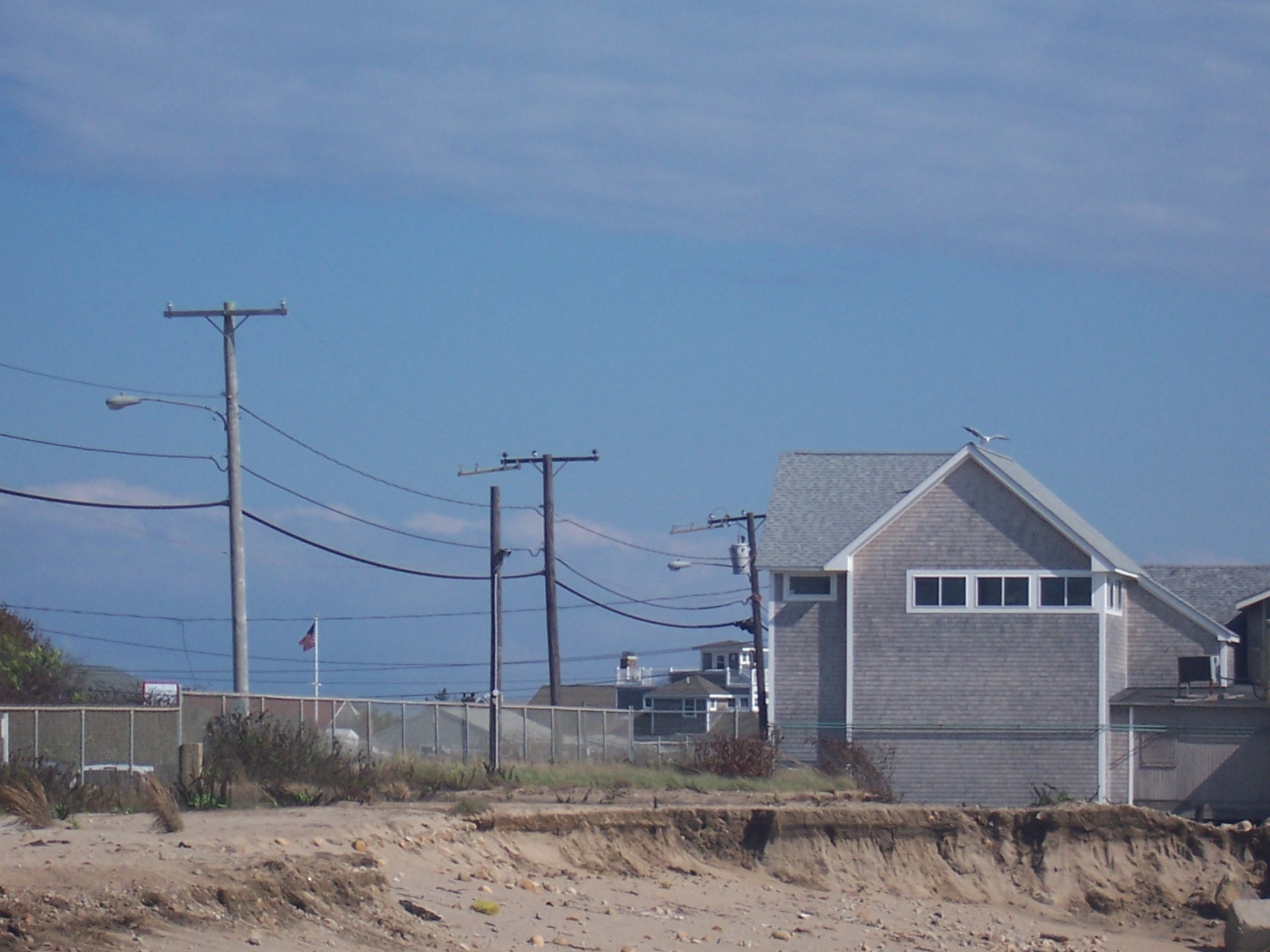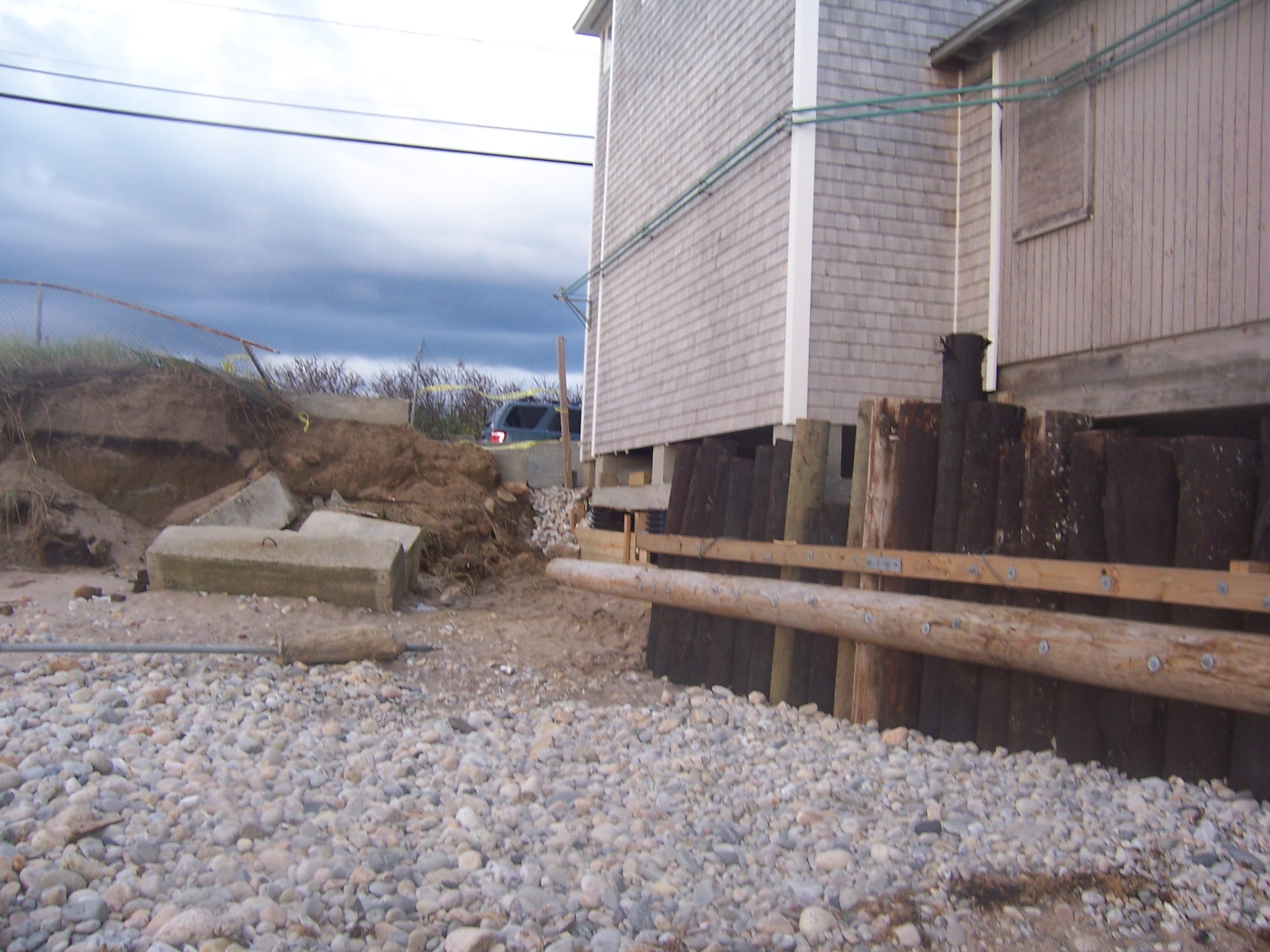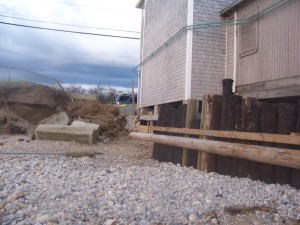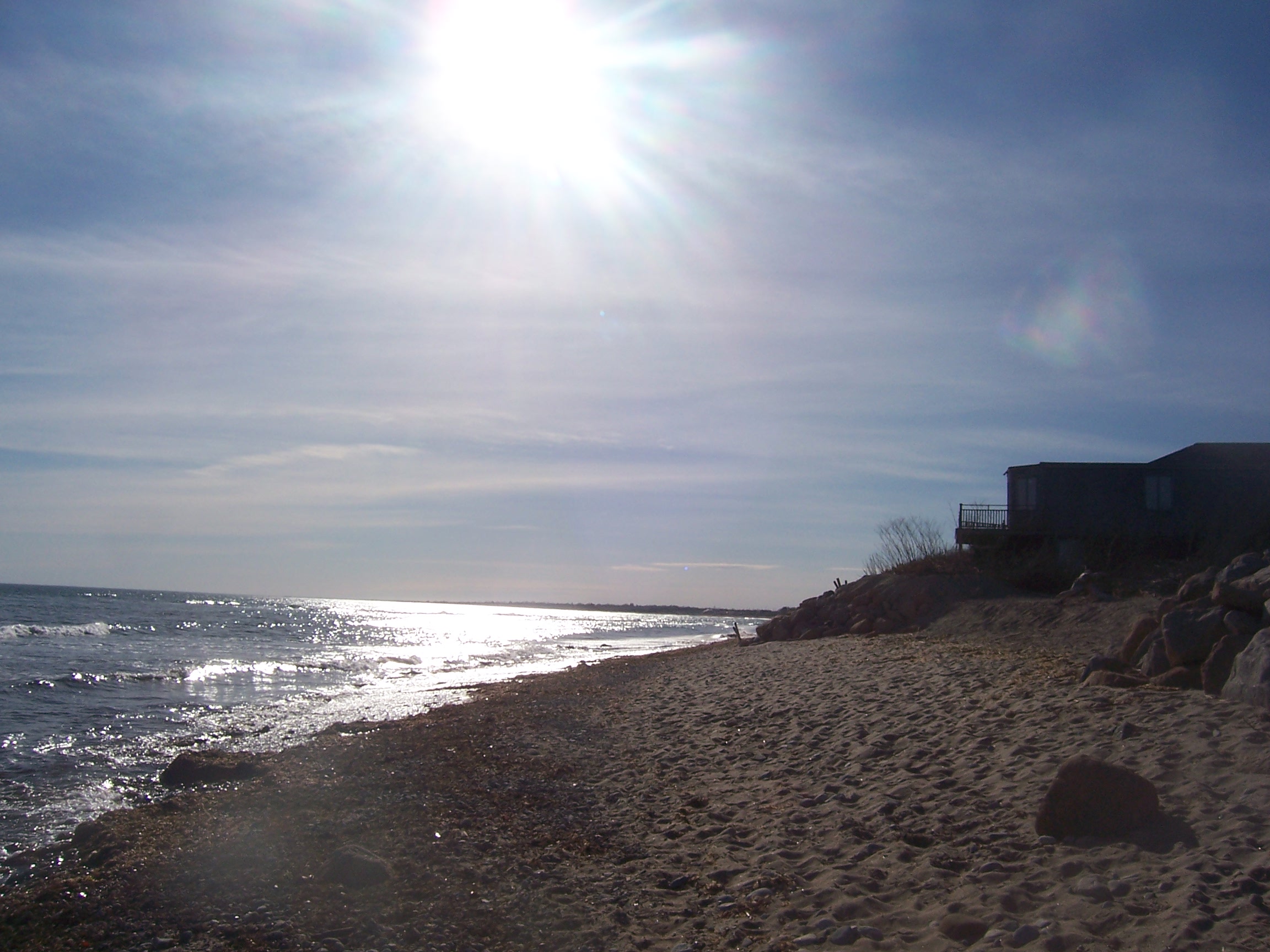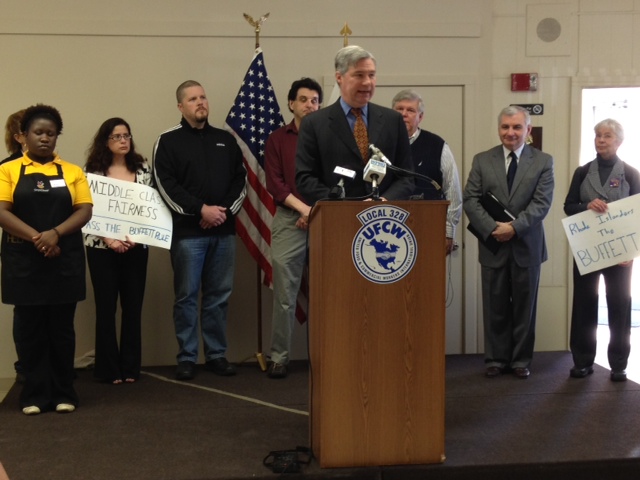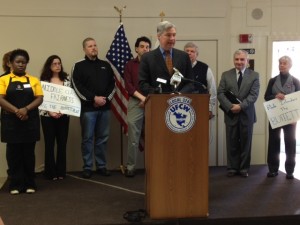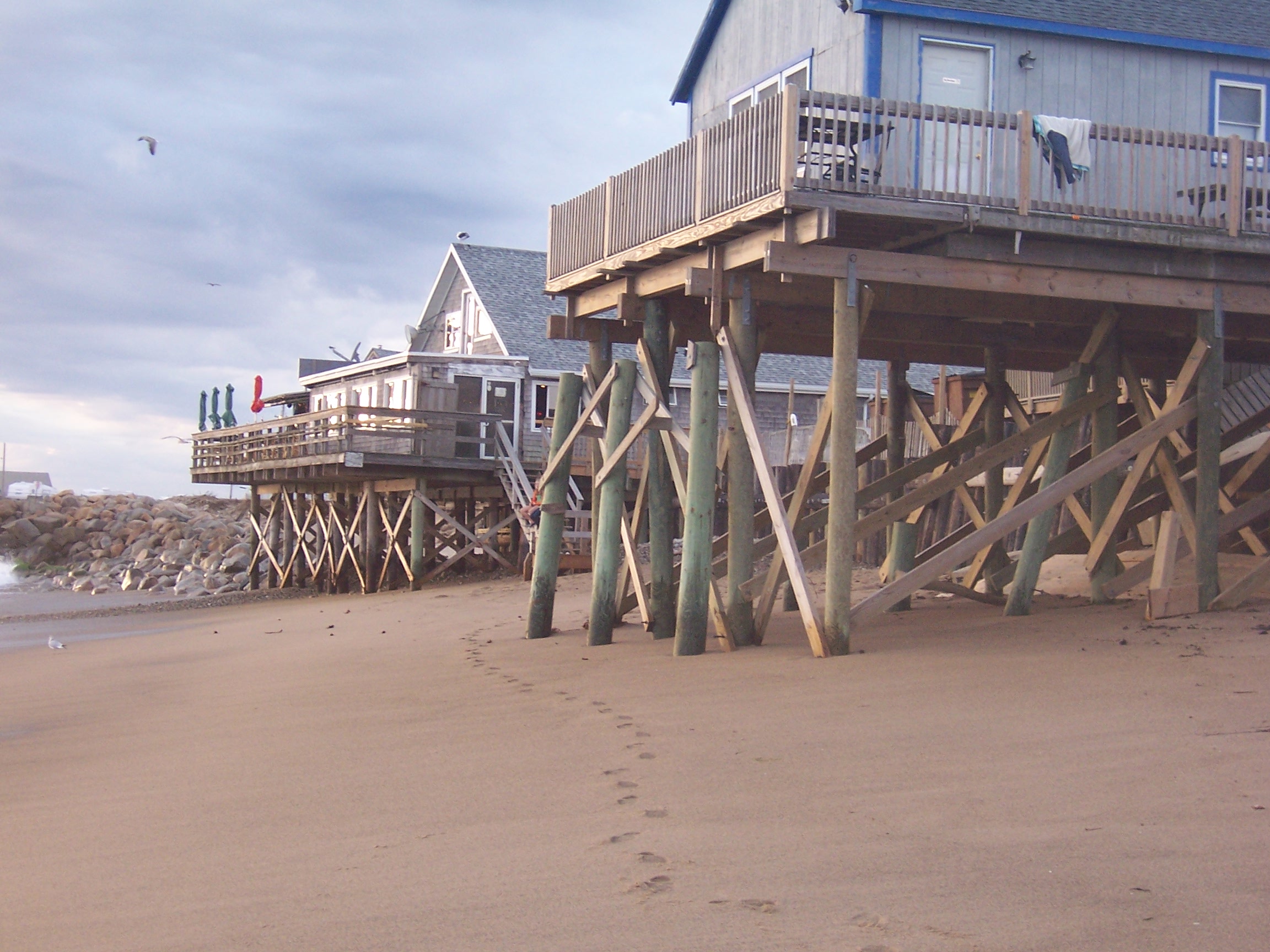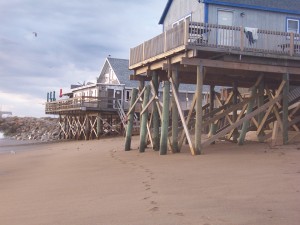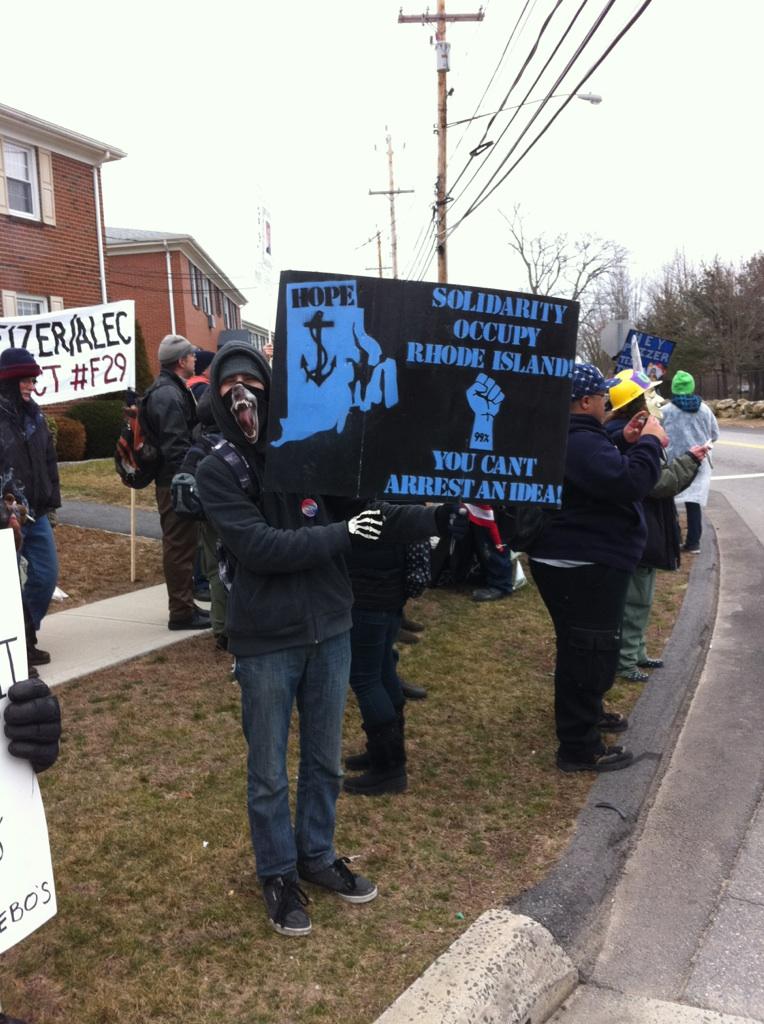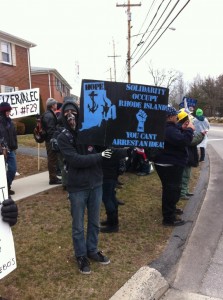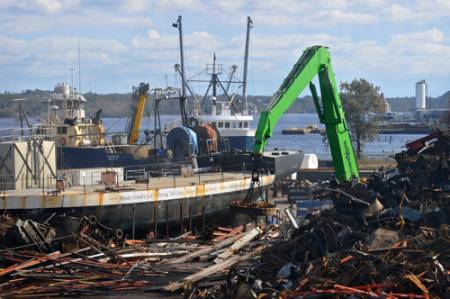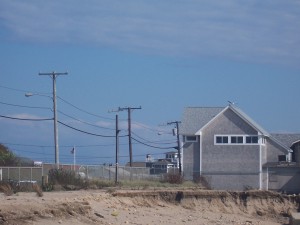 In a 9-0 vote, with one abstention the Coastal Resource Management Council in reconsidering the application of the Town of South Kingstown voted to approve the construction of a 202 ft sheet pile wall armament as a measure of protection for the sole access road into the seaside community of Matunuck.
In a 9-0 vote, with one abstention the Coastal Resource Management Council in reconsidering the application of the Town of South Kingstown voted to approve the construction of a 202 ft sheet pile wall armament as a measure of protection for the sole access road into the seaside community of Matunuck.
Executive Director, Grover Fugate presented a four-prong approach for dealing with the critical erosion issues in Matunuck and other Rhode Island Coastal areas. The first prong, of immediate concern dealt with the “imminent peril situation” in Matunuck, presented by Town Manager, Stephen Alfred as a public health and safety concern for residents should Matunuck Beach Road infrastructure fail.
Calling upon the full Council to take action in support of public safety, Fugate proffered his plan. “It is an attempt to try and deal with the problem that is immediately before us.” Implemented as a stop gap measure, the 202 ft. armament was designed to shore up the critical segment of road presently exposed by severe and sustained erosion.
In his memo, dated May 4, 2012 to the Council in anticipation of the vote, Fugate cautioned, “Even if the town were to agree on some of the alternatives suggested at the hearings and in the staff reports, there is an implementation lag of 18-36 months. The road is already in a compromised state and one good coastal storm could significantly damage it.”
Attorney William Landry, representing Kevin Finnegan, owner of the Ocean Mist, as well as Francis O’Brien who owns Tara’s Pub, just east of the Ocean Mist property pleaded with the council to consider additional measures. Suggesting soft measures and a united approach to resolving the Town’s issue, Landry acknowledged the existent conditions.
“There is a vulnerable area west of the Ocean Mist at which the most severe erosion is occurring. Frankly, it may well be occurring because of the location of the Ocean Mist and the swirling effect of the water collecting in that area. That’s the area 40 ft. maybe tops where everyone is saying, we’re getting real close to the road here.”
Donald J. Packer, attorney for residents and abutters spoke in support of the Town’s proposal and presented the Council with the additional support of the trustees responsible for the parcel of land directly adjacent to the sheet pile wall placement. Addressing his colleague’s indication that the Town didn’t have the ability or own the land south of the proposed armament, seaward, assured the council that his clients were on board. “I think that we can maybe put on the table in dealing with the condemnation issue, [they] are prepared to work with the Town and what’s necessary with the town to do what they need to do.”
Packer’s clients have been in previous discussion with Finnegan regarding a possible purchase of the property adjacent to the Ocean Mist on the west. “Apparently there is nothing on the table at this point other than the Town’s proposal. My clients at this point are concerned that the road will be lost and are asking that this be approved.”
Several environmental advocacy groups appeared to testify before the council with each voicing its concern regarding hardened structures and while acknowledging the need for immediate action in the case of Matunuck.
The special exception granted and application approved, the question of time still weighs heavy on the residents of Matunuck. The Town will need to move through the necessary stages of approval with the State Department of Transportation in advancing the project. Utility lines, approved for relocation will be moved to the northern side of Matunuck Beach Road prior to commencing construction.
The Town’s timeline, per Alfred is for construction to begin the first week in September. Hurricane season will be underway and the hope is to have the project complete before another major storm wages war with what remains of the beach and headlands adjacent to the road.
CRMC recommendations moving forward include a comprehensive Special Area Management Plan (SAMP) for Rhode Island’s shoreline, monitoring and enforcement in designated areas and a cooperative effort of all individuals concerned with ongoing protection and mitigation efforts for the State’s barrier beaches.

